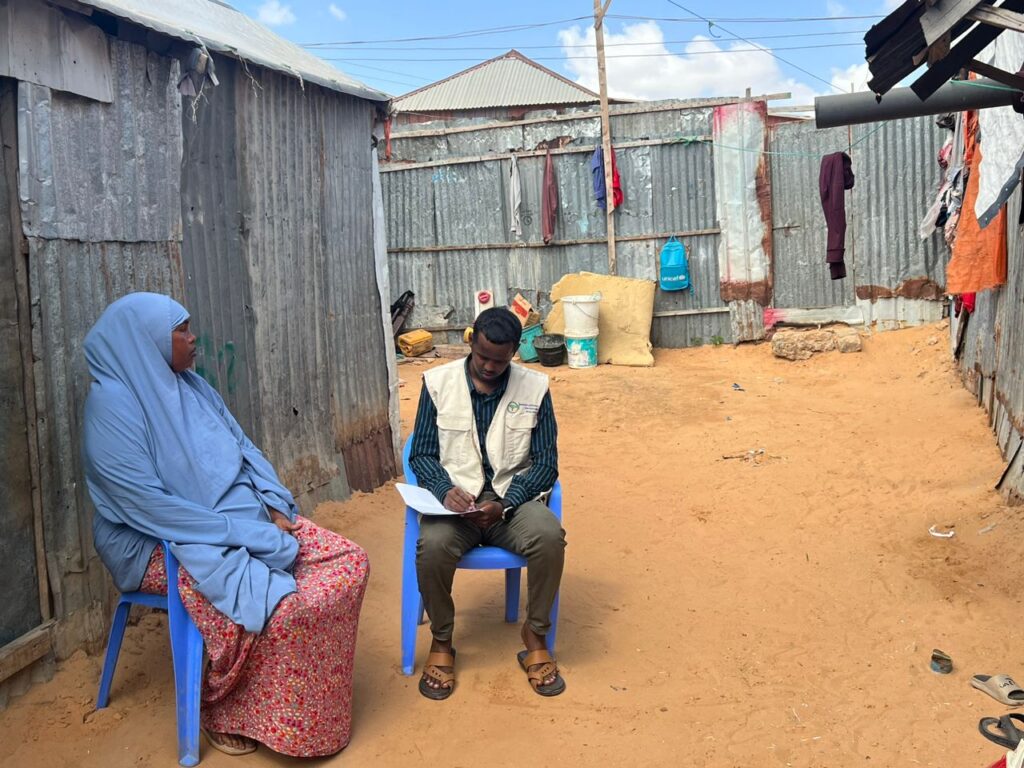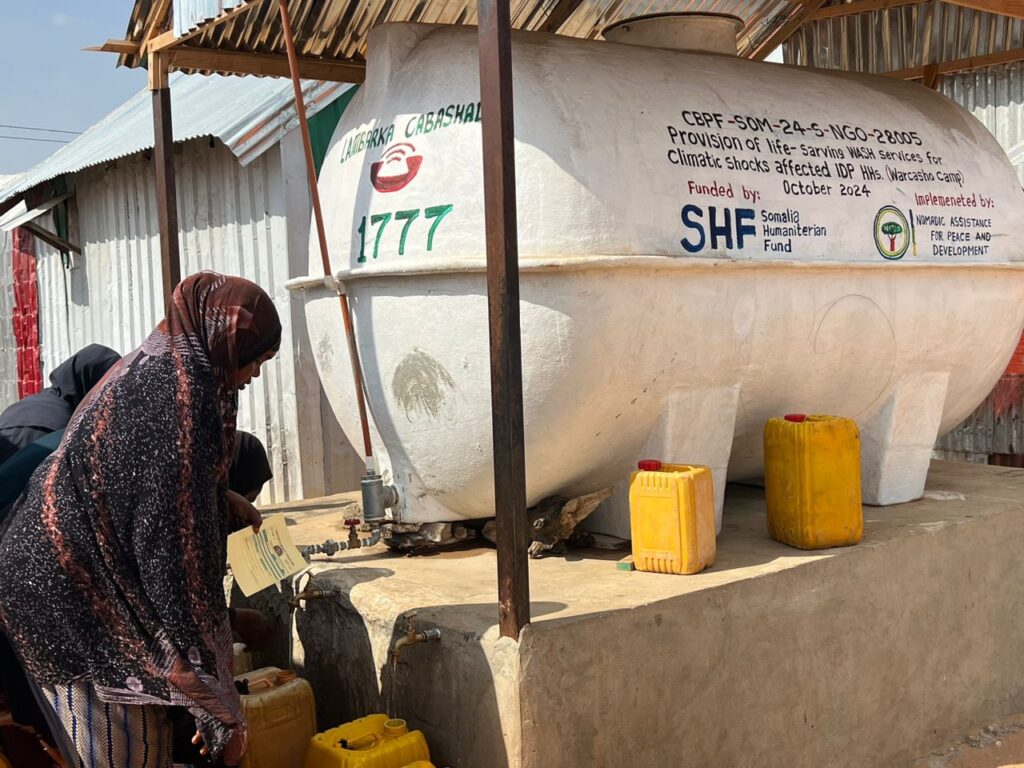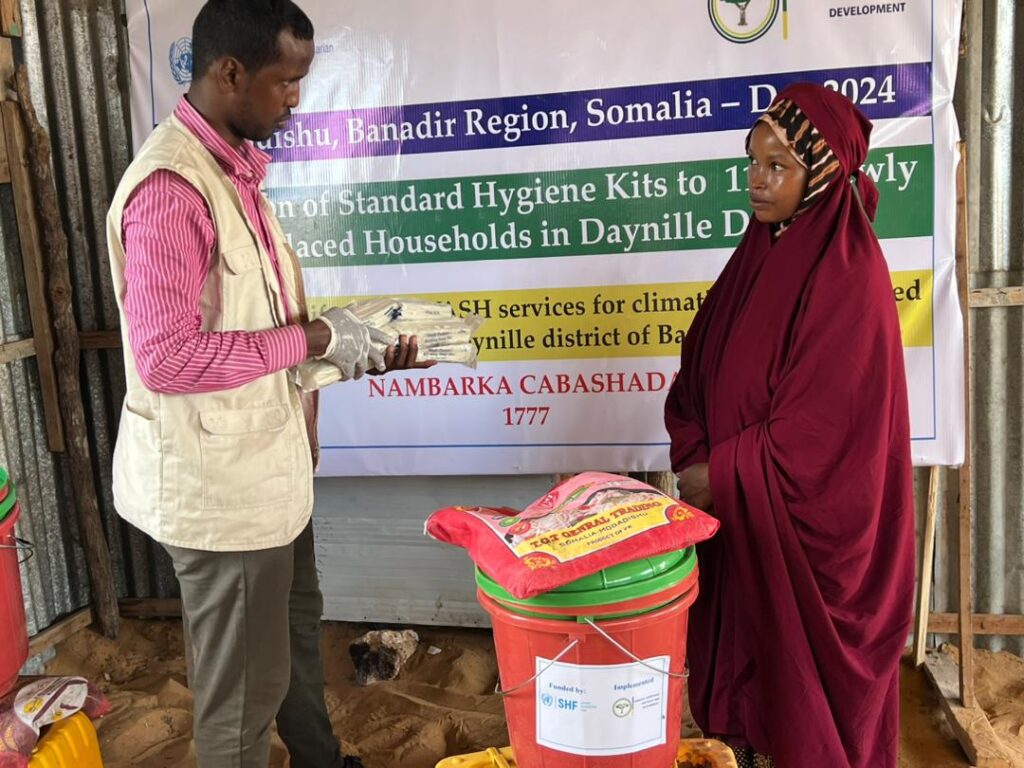Displacement continues to be a major issue in Somalia, with 467,915 individuals newly displaced since January 2024 due to conflict, insecurity, drought, and flooding. Banadir region, which hosts the largest number of internally displaced persons (IDPs), is experiencing tremendous pressure on its resources. Since the start of 2024, 60% of the 197,000 reported evictions have occurred in Banadir, often leading to the destruction of humanitarian infrastructure, including water and sanitation systems (According to the 2025 Humanitarian Needs and Response Plan (HNRP).
Warcaasho IDP Camp, located in Deynille District, Banadir region, on the outskirts of Mogadishu, Somalia, is home to some of the displaced families. Despite its proximity to the capital, the camp remains underserved. At the camp, access to clean water is challenging with approximately 1,760 households struggling to access this basic necessity.

Binti Mohamed is one of the displaced households living at this camp. She reported that she used to pay between 1,000 to 2,000 Somali shillings per 20-liter jerrycan of water, an amount far from sufficient to meet her family’s domestic needs. This constant shortage forced her to walk long distances to find water, further compounding the burden, especially for women and girls who are most often tasked with water collection. These journeys not only drained their time and energy but also exposed them to safety risks and impacted their health and well-being.
In response, Nomadic Assistance for Peace and Development (NAPAD) with funding from Somalia Humanitarian Fund (SHF), implemented a WASH (Water, Sanitation, and Hygiene) project across 10 IDP camps, including Warcaasho in Deynille district. The initiative introduced a water voucher system, installed water distribution networks, provided WASH hygiene kits to enhance the dignity and well-being of affected households while promoting safe hygiene practices in displacement settings, and trained local Water Management Committees. These efforts aimed to improve access to clean water and hygiene practices, and ultimately enhance the health and well-being of the displaced communities.

Over 6,600 individuals across the four camps, including 380 households in Warcaasho, have access to clean water through the voucher system, significantly reducing the burden on women and girls. “The water voucher system has made a huge difference in our lives,” Binti Mohamed Mohamud shared. “For the past two months, we’ve been able to collect enough clean water from the communal water point without worrying about using contaminated water, long walks or expensive water fees.”
The distribution of hygiene kits has further empowered families to maintain better sanitation practices, directly contributing to a decline in waterborne diseases like cholera and diarrhoea. For Binti, these kits have made it easier to practice safe sanitation in her household and have allowed her to take better care of her children’s health in a more dignified way.

Additionally, the training of local Water Management Committees has helped build capacity for sustainable water resource management. Binti and her community now benefit from the services provided by these committees, ensuring long-term water access.
Binti expressed her gratitude saying “I am incredibly thankful to NAPAD and SHF for their work. They have brought change to our camp by improving access to water, which has greatly improved our daily lives.”
